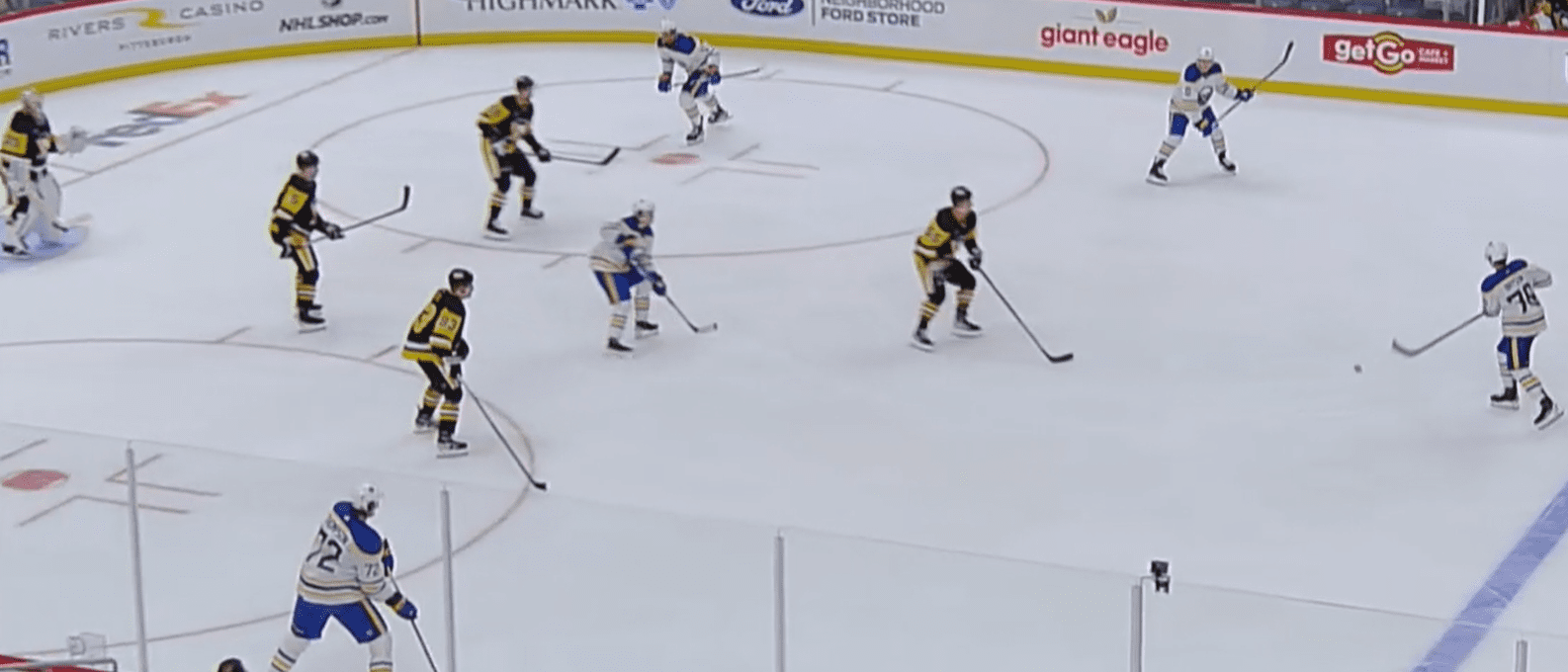Penguins
Will Penguins’ Penalty-Killers Come Up Short Again This Season?

The Pittsburgh Penguins allowed 55 power-play goals last season.
From coach Mike Sullivan’s perspective, his team ended up with such a bloated total because it displayed nearly a matching number of flaws, foibles and failures while playing shorthanded.
“I don’t know that it was any one particular thing,” he said. “It was a number of things over the course of time, and we tried to address them as they went. Sometimes, we weren’t winning faceoffs. Sometimes, we weren’t getting clears when we had opportunities. Sometimes, we didn’t do as good of a job making (offensive-zone) entries difficult.
“I’ve always been a believer that if you can win faceoffs and you can get 200-foot clears and you can make the entry difficult (for the power play), those three aspects of your penalty-kill go a long way to set your kill up for success, because you limit zone time. We measure those things pretty consistently with our kill.”
The Penguins’ penalty-kill, which had placed third in the NHL rankings in 2021-22 with a success rate of 84.4 percent, plummeted into 16th place last season, when it thwarted opposing power plays just 79.1 percent of the time.
Considering that, until their flameout in the final few days of the regular season, the Pittsburgh Penguins were a virtual lock to make their 17th consecutive appearance in the Stanley Cup playoffs, it’s not a reach to suggest that a more efficient penalty-kill might have been enough to get them back into the postseason.
It surely is not entirely a coincidence that the seven forwards who led the Penguins in shorthanded ice time in 2022-23 — Nick Bonino (3:31), Teddy Blueger (2:37), Brock McGinn (2:32), Ryan Poehling (2:26), Filip Hallander (2:07), Mikael Granlund (1:59) and Josh Archibald (1:43) — no longer are on the payroll, their places taken by a number of blue-collar forwards with strong penalty-killing credentials.
The Pittsburgh Penguins’ 3-1 victory against Buffalo Thursday night at PPG Paints Arena was the first time in this preseason that Sullivan deployed penalty-killers who are expected to see that kind of duty during the regular season.
The tandem of Lars Eller (2:35) and Drew O’Connor (2:00) got the most ice time while the Penguins were shorthanded, but no fewer than seven other forwards got on the ice while Buffalo had the extra man.
They were Noel Acciari (1:52), Jeff Carter (1:18), Bryan Rust (1:09), Sidney Crosby (1:05), Austin Wagner (1:02), Reilly Smith (42 seconds) and Evgeni Malkin (five seconds).
The Pittsburgh Penguins killed all four Sabres power plays, covering a span of five minutes, 54 seconds. limiting Buffalo to five shots on goal while it was up a man. The Sabres’ lack of success with the man-advantage might have had something to do with the watered-down lineup they dressed for that game, but that didn’t detract from the performance of the penalty-kill.
“When you look at it from a personnel standpoint, we’ve added some people who I think excel in that area,” Sullivan said. “Lars Eller is one. Noel Acciari is another. Matt Nieto is another. From a personnel standpoint, we have some guys who have a body of work in the league who have shown they can be successful and that they’re really competent in those areas.”
Rust, who placed eighth on the team in average shorthanded ice time (1:36) last season, suggested that one of the keys to a successful penalty-kill is rooted in believing in the ability of both individuals and the group.
“Any time any penalty-kill struggles, it’s because of a lack of cohesion and lack of confidence,” he said. “I don’t mean confidence in just being on the ice; I mean, making decisive plays and not second-guessing yourself. When it’s time to be aggressive, you be aggressive and don’t hesitate and don’t over-think it, because that gives that power play an actual half-second to make those plays. When things go awry is when those things fall by the wayside.”
Acciari, meanwhile, cited the importance of the newcomers becoming comfortable with their responsibilities as soon as possible.
“The quicker you learn the systems and buy into what the staff puts in front of you, the quicker the results come from it,” he said. “There are tweaks from last year and getting everyone on the same page early will be good. Once we get comfortable with the guys we’re with, the easier it will be to click.”
There’s at least one other issue that Sullivan said he stressed to his players on the first day of this training camp: The importance of avoiding unnecessary penalties.
“If my memory serves me, we took 51 more minor penalties last year than we did the prior season,” he said. “That’s over half a penalty per game over the course of a full season. That puts an added burden of responsibility on the guys who are killing all the time.
“So we also have to exercise more discipline in our overall game. Stick discipline. The amount of penalties that were taken, we simply have to simply do a better job of making sure we don’t put our kill in tough spots.”
Starting another streak of playoff appearances might depend on it.












